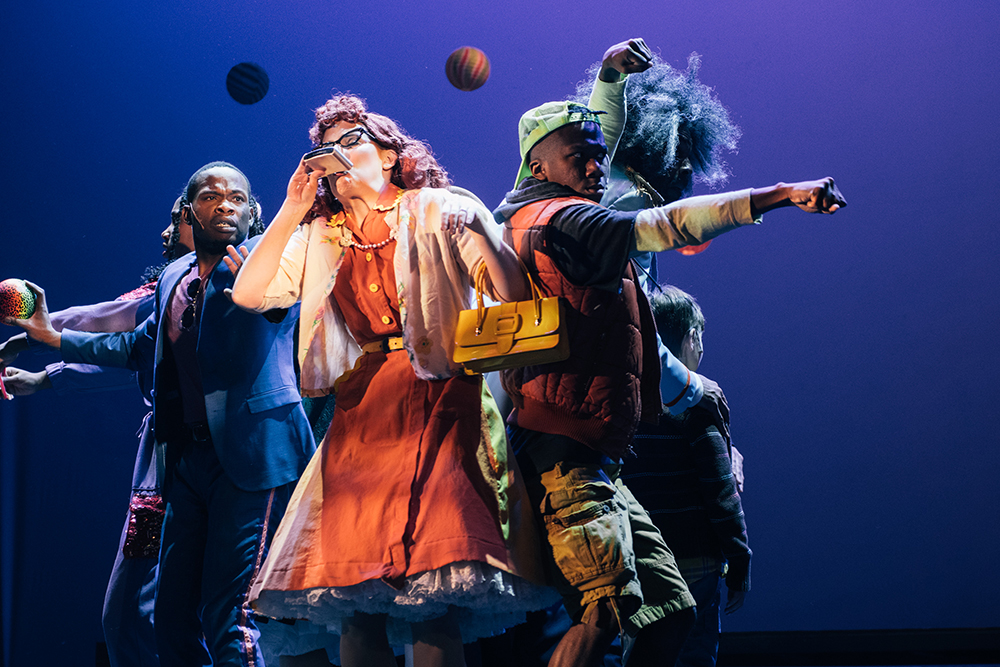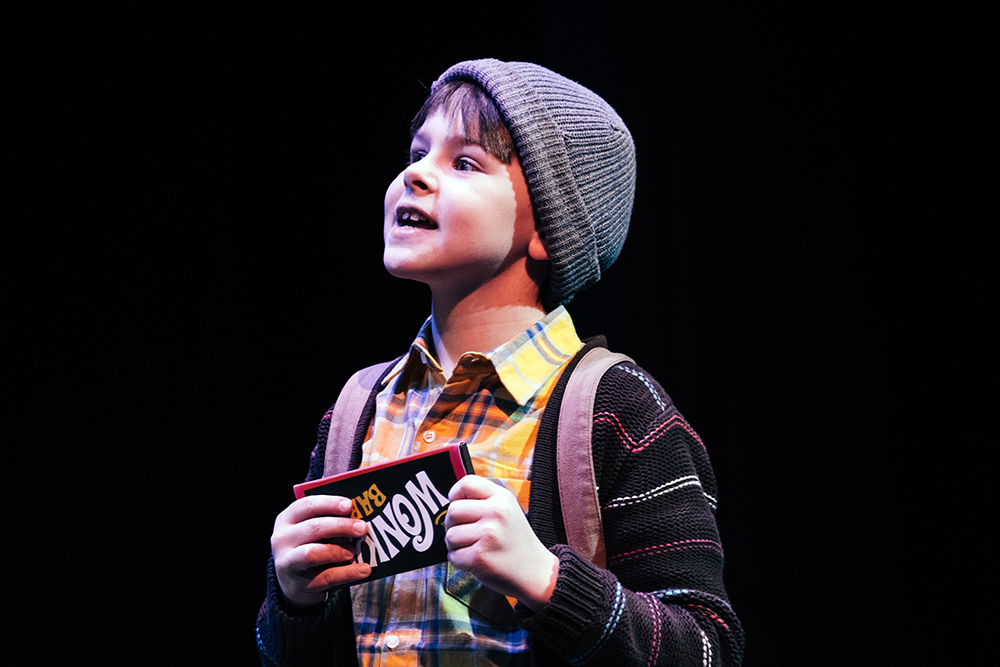Having read Roald Dahl’s Charlie and the Chocolate Factory many times growing up and having seen both the 1971 and 2005 movie adaptations, I thought I knew exactly what to expect walking into Playhouse on the Square’s opening night of the stage musical. However, I’m happy to say that I was entirely mistaken. The production, directed by Dave Landis, told a familiar story in a way I had never seen before, and the entire show was — appropriately — a sublime display of eye candy.
Though the onstage version of Charlie and the Chocolate Factory shares quite a few similarities with the 1971 film Willy Wonka & the Chocolate Factory, such as several of the same musical numbers, there are also a few differences. For one thing, this play takes place in a contemporary setting, with many references of modern relevance — Violet Beauregarde’s Instagram following, as one example. These nods to a present-day timeline help make the humor in the musical more accessible to a 2024 audience, and much of that humor is surprisingly dark, though in my opinion all the more funny for it.
The story of this musical is the same one most people have grown up knowing: Plucky daydreamer Charlie Bucket, played on opening night by McCager Carver, wins one of five golden tickets to gain entry to the Wonka Chocolate factory, a place that’s been operating behind mysteriously closed gates for decades by the reclusive genius Willy Wonka. Carver, in his Playhouse debut, absolutely shone as young Charlie Bucket, bringing a mischievous and carefree energy to the character while maintaining what the audience must know about Charlie from the get-go and never question: He is good.

As in the ’70s film version, Mr. Bucket is deceased, meaning Mrs. Bucket is a single mother working alone to maintain a household of five dependents, if we’re including the four immobilized grandparents. Amy Polumbo Nabors’ interpretation of the character was slightly different from what I’ve come to expect from the onscreen versions of Mrs. Bucket, less overtly nurturing and more anxious, which makes perfect sense given her circumstances. Still, one moment that I thought was extremely touching took place once the optimistic Charlie starts to lose hope after failing to find a golden ticket in his annual birthday chocolate bar. It’s his seemingly more cynical mother who makes a wish for his dream to come true — a wish that of course comes to fruition. A mother’s love isn’t really of thematic importance in this show, yet it’s nonetheless a hidden linchpin to the plot if you’re paying attention.
Without question, my favorite section of this musical was the introduction of the golden ticket winners. Each one came with their own musical number, and each one was somehow even funnier than the last. A surprising standout was Brooke Papritz as Mrs. Teavee, which would never have been a character I would have thought warranted much attention. Papritz, however, managed to make Mike Teavee’s introduction just as entertaining with an almost entirely solo performance as the other kids’ intros were with all the glitz and glamor an onstage musical has to offer.
The character of Willy Wonka has a duality in this musical, as he disguises himself as a mere chocolate shop owner during the first half of the show. Jimmy Rustenhaven’s Wonka in act one is somewhat quiet and unassuming, though by act two we are introduced to someone who doesn’t seem particularly bothered by occasionally straying over the line that separates eccentric, creative genius from rich, outlandish asshole. Watching that transformation take place was a highlight of the show.
For a musical about chocolate and candy, I expected the production to be visually decadent, an expectation that was met and surpassed. Lindsay Schmeling’s costume design was spectacular to look at, with a variety of textures, colors, sequins, and accessories constantly on display. The reporter Cherry Sundae? Style icon. The choreography of the ensemble was also highly entertaining, at times like watching a delightfully riotous fever dream (I’m thinking particularly of the squirrel ballet that delivers Veruca Salt’s comeuppance).
Charlie and the Chocolate Factory has much to offer to Memphis audiences: It’s sweet, uplifting, and, more than anything, fun.
Charlie and the Chocolate Factory runs at Playhouse on the Square through February 18th.
